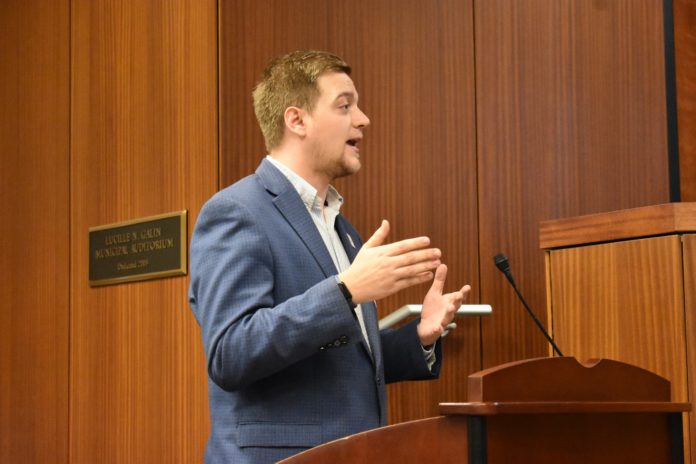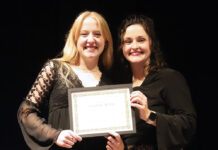
Birmingham and Mountain Brook join Vestavia Hills in ‘Trafficking-Free Zone’ declarations
CULLMAN, Ala. – A day after the Cullman County Human Trafficking Task Force met with the Cullman City Council about a proclamation declaring the city a Trafficking-Free Zone, the cities of Birmingham and Mountain Brook finalized their own proclamations and became the second and third zones in the state, behind Vestavia Hills. Special attention is focused on Birmingham and the surrounding region due to that city’s role as the location for the upcoming 2021 World Games.
After The Tribune reported that the Cullman County Task Force is working with the City of Cullman toward such a declaration here, several readers took to social media to argue that the proclamation of a trafficking-free zone is no more likely to stop human trafficking in a given place than the proclamation of a “drug-free zone” is to stop drug use.
Experts agree, to a point. A simple proclamation may have little weight, but the Trafficking-Free Zone declaration is actually part of a larger process that may not stop all human trafficking in a city, but will make combating trafficking easier there.
The U.S. Institute Against Human Trafficking (USIAHT), which sponsors the Trafficking-Free Zone program, calls it:
A community-wide strategy to fight against human sex trafficking
Although slavery is commonly thought to be a thing of the past, human sex trafficking still exists today, globally and throughout the United States, when traffickers use force, fraud, or coercion to control other people for the purpose of engaging in commercial sex. There were an estimated 4.8 million victims of sex trafficking worldwide in 2016, and the United States of America leads all other nations in driving demand – meaning citizens of the United States are purchasing sex in greater numbers than any other nation.
The Trafficking-Free Zone program is a county-wide initiative focused on reducing the demand – the number of buyers – for sex-trafficked victims. County-by-county the Trafficking-Free Zone program is implemented in collaboration with community members and leaders, law enforcement, businesses, schools, healthcare organizations, churches and the media. The focus of the program is on arresting and prosecuting sex buyers instead of the victims who are being sold, educating people on sex trafficking and implementing numerous other demand reduction techniques including technology and research components. When these sectors are activated and working in unison for a one-year period, the Trafficking-Free Zone community can expect to see a significant decline in demand.
The USIAHT describes the purpose of a community proclamation on its website:
Signing a Proclamation demonstrates your stance against human trafficking and activities which support it. A proclamation sends a clear message to your sphere of influence that you are educated about human trafficking in your community, you are enraged that our children are being exploited, and you are engaged in the effort to stop the trafficking of our children.
According to the USIAHT, the process of becoming a Trafficking-Free Zone also requires communities, companies and other organizations to:
GET TRAINED
Ignorance is not bliss . . . The U.S. Institute Against Human Trafficking training program offers industry-specific human trafficking content designed to educate and engage professionals, advocates, parents, and community members. Developed by experts within each industry, the trainings are strategically designed to increase awareness about human trafficking, advance the participant’s ability to identify those who are being victimized, and deliver tangible methods for participants to get engaged in combating trafficking.
and to
ENACT POLICY CHANGES
Add an organization-wide value or code against sex trafficking and sex buying by using a provided statement, adding to an existing statement, or writing a new statement which suits your company’s needs.
Following the Birmingham and Mountain Brook declarations, Jefferson County’s Family Court and Children’s Policy Council issued the following statement:
Birmingham and Mountain Brook become Trafficking-Free Zones; Birmingham largest in the nation
The cities of Birmingham and Mountain Brook have joined the City of Vestavia Hills in declaring themselves a Trafficking-Free Zone. The proclamation, similar to the Drug Free Zone initiatives in the early 2000s, requires that: 1) all city staff receive human trafficking training, and 2) the city adopt a “zero-tolerance” policy regarding purchasing commercial sex at work. Birmingham is the largest city, by population, in the nation to have taken the vital step in declaring themselves a Trafficking-Free Zone.
The Trafficking-Free Zone program is a nation-wide initiative of the U.S. Institute Against Human Trafficking (USIAHT), and local anti-trafficking coalition, the Child Trafficking Solutions Project (an initiative of the Children’s Policy Council and the Jefferson County Family Court) to facilitate the groundwork and trainings.
Birmingham Councilor Crystal Smitherman, resolution sponsor, said that, “Birmingham was the epicenter of the Civil Rights movement 60 years ago, and we once again have the opportunity to lead the nation in the fight for civil and human rights. We as a city take this issue incredibly seriously, and look forward to working with the countless trafficking organizations that make up the Child Trafficking Solutions Project on future endeavors to end child trafficking and keep our children safe.”
Mayor Stewart Welch said, “The City of Mountain Brook takes this issue very seriously, and we vow to train our entire city staff, including first responders, to ensure that our children are safe and that our community is informed about human trafficking and what to do if they suspect a case of human trafficking.”
Geoff Rogers, CEO of USIAHT, said, “The community response to the Trafficking-Free Zone initiative is a testament to how seriously the entire Birmingham community, and the state of Alabama, is taking the issue.”
Jordan Giddens, community engagement coordinator for the Child Trafficking Solutions Project (CTSP), said, “Our coalition, representing over 50 organizations across the Birmingham metro has worked tirelessly to saturate the entire Birmingham community with anti-trafficking awareness, and we are overjoyed that municipalities across the entire state are taking the steps to declare themselves a Trafficking-Free Zone.”
If you or your business are interested in becoming a Trafficking-Free Zone or you would like to learn more about how you can help, please visit the U.S. Institute Against Human Trafficking website (usiaht.org).
If you suspect a human trafficking instance or emergency, please either call the National Human Trafficking Hotline at 1-888-373-7888 or text HELP to BeFree (233733), or call the Department of Homeland Security’s trafficking hotline at 1-866-DHS-2-ICE (1-866-347-2423).
The Cullman Tribune is the media partner of the Cullman County Human Trafficking Task Force.
Copyright 2019 Humble Roots, LLC. All Rights Reserved.




















